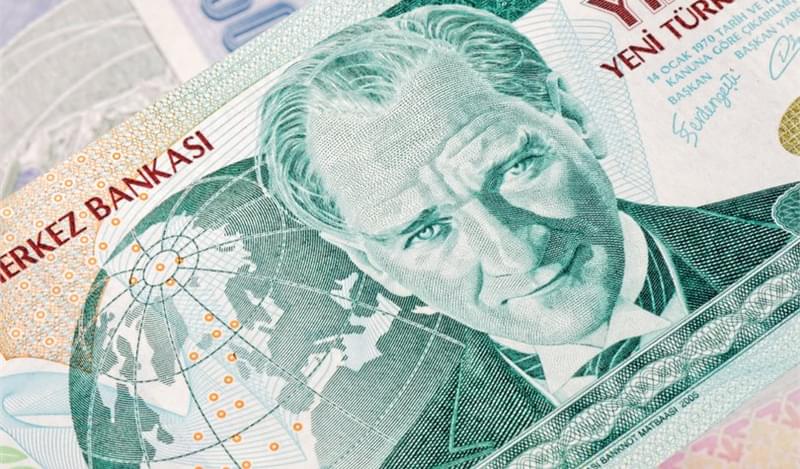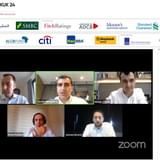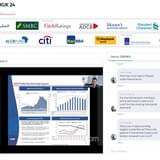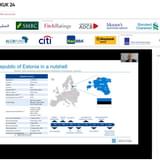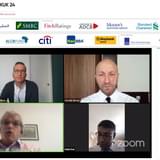Despite Davutoglu’s resignation, recent political activity in Turkey does not seem to have worried international markets.
“The markets obviously took the new cabinet positively, and there is definitely a rally in Turkish assets. The lira weakened when Davutoglu resigned, but there was not much change with the new cabinet announcements,” said Ulrich Bartsch, Lead Economist for Turkey at the World Bank.
The markets reacted positively to Simsek retaining his position as Deputy Prime Minister. The lira rose by 2% to 2.94 against the dollar after the announcement. It is currently trading at 2.93496 to the dollar.
10 year government bonds also saw their yields fall from 10.4% to 10%, and are now trading just under 10% according to Baris Nerezoglu, Executive Vice President of International Financial Institutions at ABank.
Despite this, worries surrounding political uncertainties in Turkey have plagued the international markets.
“The most recent episode comes on the tail end of a long period of election-related uncertainties. We have not seen decisive economic policy making since 2012 amid a worsening domestic and international climate,” Bartsch continued.
“By now, every time a decision is made the markets are saying ‘it could have been worse,’ and move on.”
Bartsch added that cabinet names are less and less important than the increasing concentration of power in the President’s office, however Nerezoglu noted that Yildirim, the new Prime Minister, had been a “harmonious” appointment, adding that “political stability will prevail.”
Although Turkish political changes seem to have soothed markets, the cabinet changes coincided with a Central Bank rate cut. The country’s Central Bank cut its overnight lending rate by 50bp to 9.5%, the second such cut since the end of April.
“A positive change was cancelled out by a negative one,” Bartsch said.
The IIF in a recent note said it expected the Central Bank to continue to cut rates as long as the lira remained stable.
However, Nerezoglu noted that the current competitive performance of the lira would be undermined by cutting interest rates further and would lead to a loss of control on the lira and send inflation to new heights.
The IIF also said that Erdogan is likely to increase pressure on the Central Bank to raise rates again despite the high chance of the US Federal Reserve raising rates next month.
The impact of the actions of the Central Bank on international market sentiment is likely to be overshadowed by the longer term outlook of the country’s economy.
Turkey is experiencing high GDP growth, driven by low interest rates and other ‘populist’ policies according to Bartsch. However, the longer term impact is not so favourable.
“It is hard to see how the current course can be sustained with the high dependency on short term financing, growing leverage ratios and increasing exposure to exchange rate volatility. Investment growth has been sluggish since 2012 and FDI has dwindled,” he noted, adding that a consumption-driven growth spurt had come to an end.
In any event, an escalation in regional volatility, which Turkey is currently exposed to, will likely damage investor interest in the country.
“Turkey will likely be involved in the Syrian conflict at some point, which would have a negative impact on foreign investors,” Nerezoglu added.
